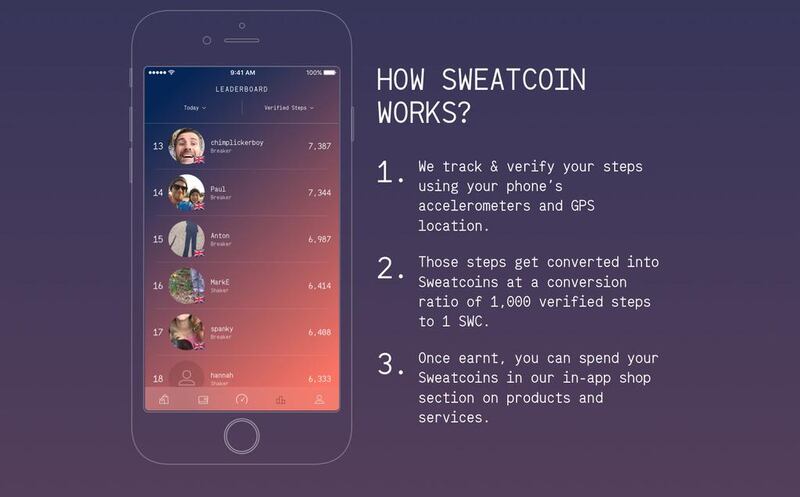A free smartphone app that will pay people to be physically active has launched in Britain, with users given digital “sweatcoins” depending on how many steps they take that can be exchanged for rewards or traded like money.
It’s the latest initiative in an emerging fitness economy that includes all manner of monitoring devices, apps that reward activity with vouchers and even experiments in offering cheap insurance to people who can demonstrate they exercise.
Sweatcoin aims to differentiate itself by using complex software to measure movement and location to prevent cheating, and by using the technology behind virtual currency bitcoin to manage transactions.
Retailers, health insurers and corporate wellness managers are taking notice, according to Oleg Fomenko, one of the serial, London-based Russian entrepreneurs who founded Sweatcoin.
“This whole business is pegged to making movement valuable,” he says. “Eventually, sweatcoin is going to have a rate of exchange tied to the British pound.”
Sweatcoin, available in Britain in Apple’s app store with an Android app to follow in months, offers one coin for every 1,000 steps. Within weeks users can have enough to exchange for fitness products or services in its marketplace.
Rewards include Vivobarefoot running shoes, Kymira infrared clothing and fitness classes from Wonderush or BOOMCycle.
The company has signed up four London start-ups to offer Sweatcoin as part of an employee rewards programme that will offer extra days off, subsidised healthy meals or free massages for sweatcoins they accumulate through activity.
Mr Fomenko says his company had talked to all the major health insurers but must prove it can attract users before it can hope to sign commercial deals to use Sweatcoin metrics as a way of calculating health risks and potentially lowering policy premiums for verified physical activity.
If Sweatcoin succeeds, the long-term idea is that insurers or employers might pay to take sweatcoins off the market as a reward to users for their physical activity.
“Right now, movement is valued at zero,” Mr Fomenko says. “How much value a sweatcoin will have will be a market decision but we know it’s not zero.”
Q&A
Does Sweatcoin have any competition?
Yes. Another British start-up, Bitwalking, is also seeking to launch its own digital currency.
How can Sweatcoin prevent slouchers from faking activity?
It cross-checks data on activity and location to verify steps. Most rival apps rely simply on user-reported information, which is why Sweatcoin is confident its software will beat its rivals. The company is also developing a proprietary version of blockchain anti-tampering technology to manage the distribution of its currency, akin to how bitcoin transactions work.
What has Oleg Fomenko been involved with before?
Sweatcoin is an second act for Mr Fomenko, whose last start-up, Bloom.fm, a UK music app launched in 2013, drew 1.3 million downloads before imploding when its sole investor, a unit of Gazprom Media, pulled out after Russia’s invasion of Crimea and he failed to find fresh funding.
So how did he come up with the idea for his latest venture?
Depressed by his failure, Mr Fomenko says he started studying blockchain technology. Meanwhile, his friend and fellow Sweatcoin founder, Anton Derlyatka, was getting going on a fitness start-up. The epiphany came when the two went for a run. “I got my buzz back,” Mr Fomenko says. The question they asked themselves was what could motivate them to sustain that feeling.
Who is funding him this time?
He is taking money from a diverse set of London start-up investors and undisclosed music industry heavyweights. Sweatcoin has raised £610,000 (Dh3.26m). It has also landed a small grant and promotional support from London Sport, an arm of the Greater London Authority. There are now plans to expand the concept to the US.
business@thenational.ae
Follow The National's Business section on Twitter





